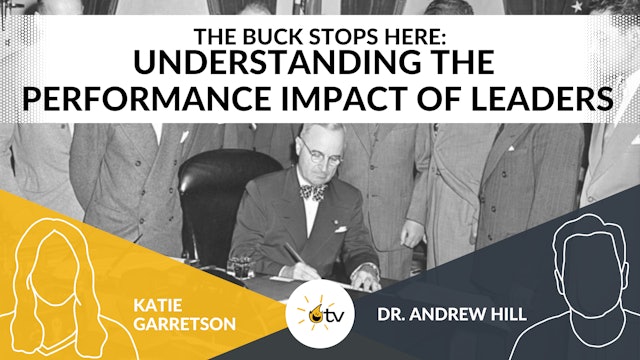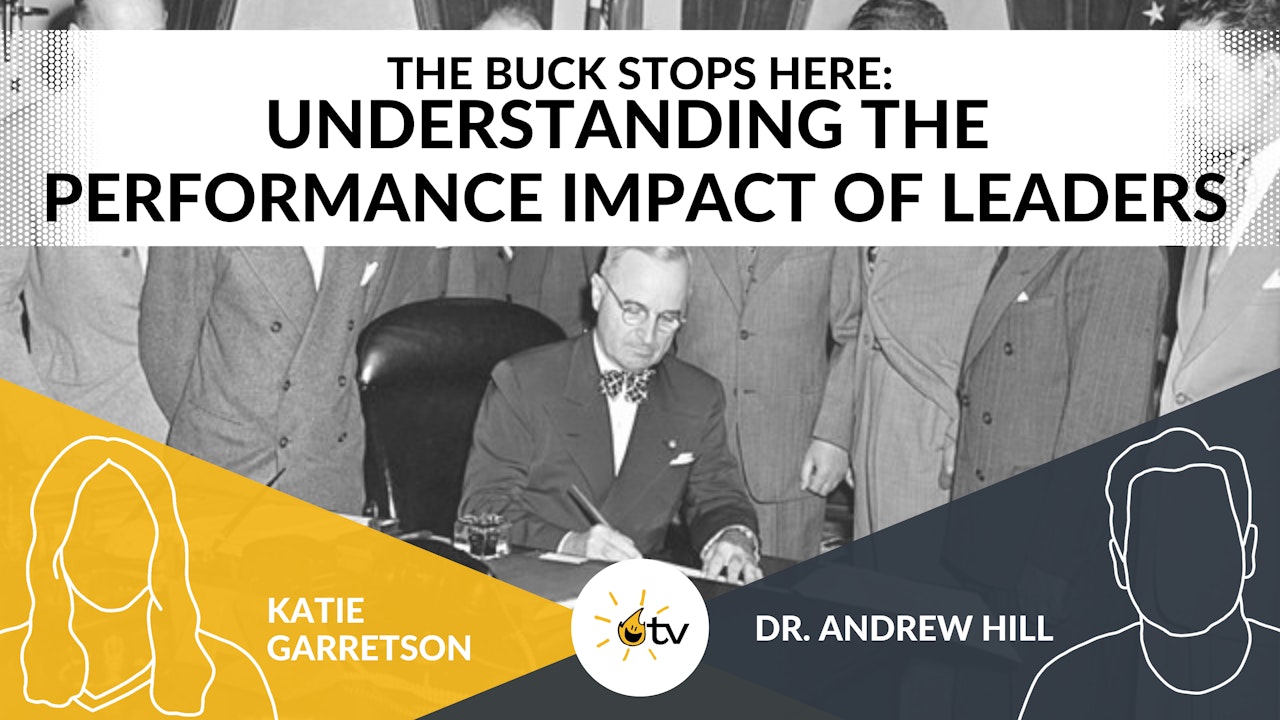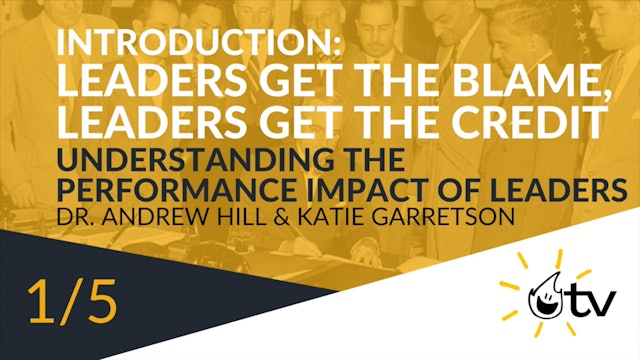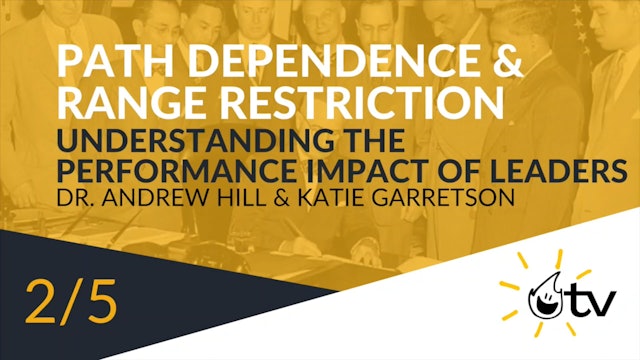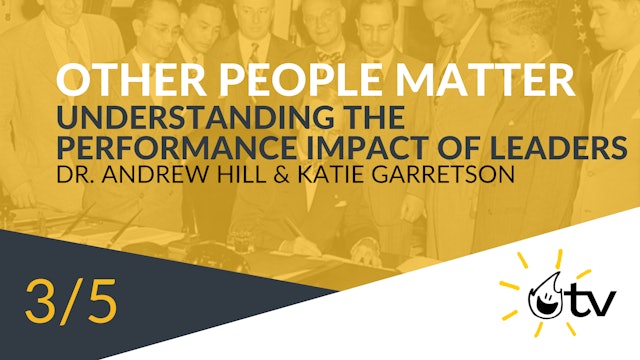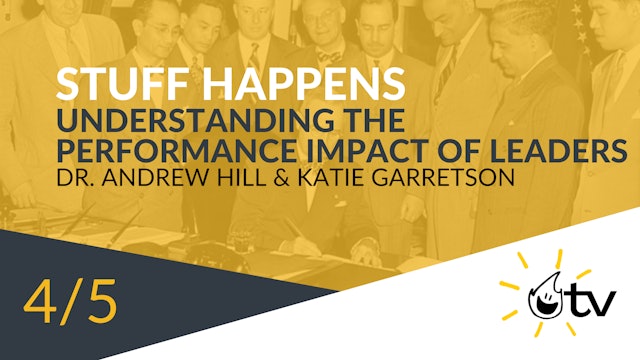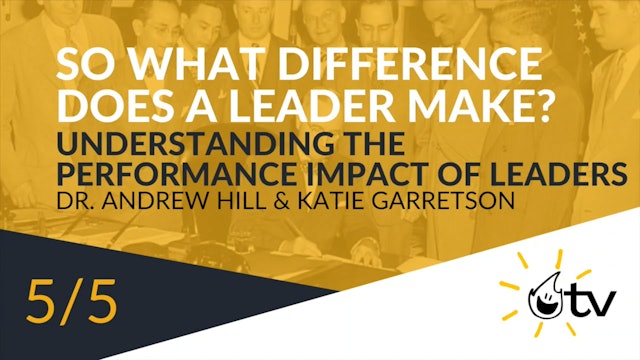The Buck Stops Here: Understanding the Performance Impact of Leaders
What difference do leaders make? How do we know when to blame leaders for failure, or credit them for success? In this program, Dr. Andrew Hill and Katie Garretson discuss a leader's role in organizational performance. Understanding how to interpret performance is important for leaders, team members, and other key stakeholders. Accurately interpreting WHY things happen is crucial for building and sustaining great performance. When we credit or blame the wrong things, we are learning the wrong lessons. So tune in to learn more!
-
Introduction: Leaders Get the Blame, Leaders Get the Credit
"The buck stops here" is a famous saying that captures leaders responsibility in owning organizational performance. But it's not enough to just be accountable. Understanding how leaders influence performance (and how they don't) is essential to long-term success.
-
Path Dependence & Range Restriction
The past matters when it comes to performance. How you got where you are as an organization affects the range of future possibilities.
-
Other People Matter
We often think of leaders as heroes (or villains) who are responsible for the entirety of an organization's performance. But the work of other people matters, too.
-
Stuff Happens
Even when leaders make all the right choices, things may not work out. The world is a complex and unpredictable place, and the best-laid plans may not produce success.
-
So What Difference Does a Leader Make?
We've talked about several factors that limit a leader's performance impact. Now we'll explore how to better understand leadership influence.

